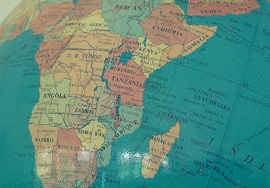 This paper examines the development of fiscal federalism in Somalia to reveal the challenges this unique country is facing and, based on the findings, propose and agenda for reform. Interviews, direct observation, and case studies were the key tools utilized in this study. The study interviewed 12 different fiscal experts (mid-level decision-makers and technical-level experts) involved in fiscal federalism issues in Somalia, and two practitioner experts experienced in various Sub-Saharan states’ fiscal policies with respect to federalism. The study also analyzed the observed situation regarding fiscal-federalism issues among the federal government and member states. Two case studies of federalism are examined, showing how Nigeria and Ethiopia fared in the process of their fiscal decentralization, functions and expenditure assignments, tax-raising power, transfer policy, natural-resources management, and revenue-sharing mechanisms.
This paper examines the development of fiscal federalism in Somalia to reveal the challenges this unique country is facing and, based on the findings, propose and agenda for reform. Interviews, direct observation, and case studies were the key tools utilized in this study. The study interviewed 12 different fiscal experts (mid-level decision-makers and technical-level experts) involved in fiscal federalism issues in Somalia, and two practitioner experts experienced in various Sub-Saharan states’ fiscal policies with respect to federalism. The study also analyzed the observed situation regarding fiscal-federalism issues among the federal government and member states. Two case studies of federalism are examined, showing how Nigeria and Ethiopia fared in the process of their fiscal decentralization, functions and expenditure assignments, tax-raising power, transfer policy, natural-resources management, and revenue-sharing mechanisms.
 This paper examines the development of fiscal federalism in Somalia to reveal the challenges this unique country is facing and, based on the findings, propose and agenda for reform. Interviews, direct observation, and case studies were the key tools utilized in this study. The study interviewed 12 different fiscal experts (mid-level decision-makers and technical-level experts) involved in fiscal federalism issues in Somalia, and two practitioner experts experienced in various Sub-Saharan states’ fiscal policies with respect to federalism. The study also analyzed the observed situation regarding fiscal-federalism issues among the federal government and member states. Two case studies of federalism are examined, showing how Nigeria and Ethiopia fared in the process of their fiscal decentralization, functions and expenditure assignments, tax-raising power, transfer policy, natural-resources management, and revenue-sharing mechanisms.
This paper examines the development of fiscal federalism in Somalia to reveal the challenges this unique country is facing and, based on the findings, propose and agenda for reform. Interviews, direct observation, and case studies were the key tools utilized in this study. The study interviewed 12 different fiscal experts (mid-level decision-makers and technical-level experts) involved in fiscal federalism issues in Somalia, and two practitioner experts experienced in various Sub-Saharan states’ fiscal policies with respect to federalism. The study also analyzed the observed situation regarding fiscal-federalism issues among the federal government and member states. Two case studies of federalism are examined, showing how Nigeria and Ethiopia fared in the process of their fiscal decentralization, functions and expenditure assignments, tax-raising power, transfer policy, natural-resources management, and revenue-sharing mechanisms.
© 2009 - 2021 - Centro Studi sul Federalismo - Codice Fiscale 94067130016
